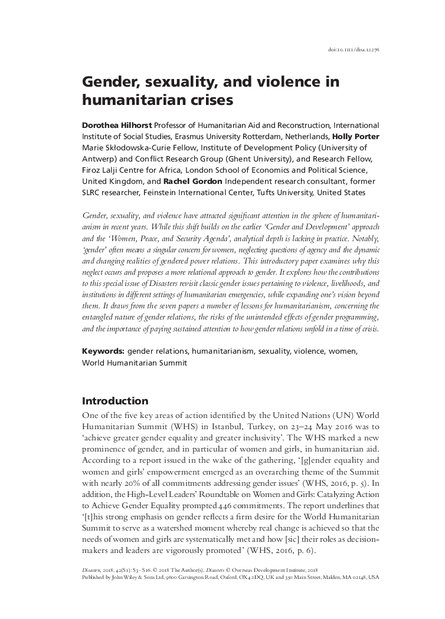
Gender, sexuality, and violence have attracted significant attention in the sphere of humanitarianism in recent years. While this shift builds on the earlier ‘Gender and Development’ approach and the ‘Women, Peace, and Security Agenda’, analytical depth is lacking in practice. Notably, ‘gender’ often means a singular concern for women, neglecting questions of agency and the dynamic and changing realities of gendered power relations. This introductory paper examines why this neglect occurs and proposes a more relational approach to gender. It explores how the contributions to this special issue of Disasters revisit classic gender issues pertaining to violence, livelihoods, and institutions in different settings of humanitarian emergencies, while expanding one's vision beyond them. It draws from the seven papers a number of lessons for humanitarianism, concerning the entangled nature of gender relations, the risks of the unintended effects of gender programming, and the importance of paying sustained attention to how gender relations unfold in a time of crisis.